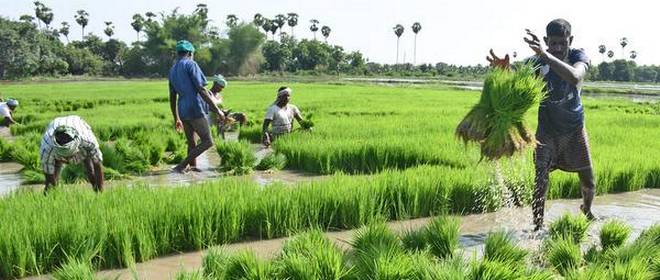Bengal Farmers Not Directly Affected By New Farm Laws, Feel Experts

Kolkata: Political parties in West Bengal and NGOs are supporting the cause of farmers who have been agitating at various points of Delhi border for the last 12 days and called a Bharat Bandh on December 8.
But farmers from Bengal, which is also a farm-centric state, have not been as vocal against the three new farm laws.
The state has seen several peasant movements over land acquisition, including Nandigram and Singur, and also has a history of Tebhaga movement behind it. But there has hardly been any protest here this time over prices and marketing of farmers’ produce.
It is harvest season in Bengal now. Experts feel if the farmers are busy in their lands, they won’t join any movement.
Anuradha Talwar of Paschim Banga Khet Majoor Samity supports the Bharat Bandh, and says her organization has been staging protests in districts like Nadia. But she adds that Bengal farmers with small land holdings are not directly affected by the new laws.
“Here, the kind of farming is different from what happens in northern states or Maharashtra. A farmer with 50 acres of land is considered big, unlike farmers from Punjab and Haryana. They also have a lot of extra produce to sell, unlike here, which is why the MSP and procurement system does not affect them much. The threat has not dawned on the farmers in Bengal,” said Talwar.
However, she adds, “The issue still concerns us indirectly for two reasons. Firstly, the new farm law plans to finish off the procurement system, which in turn will mean collapse of the rationing system. It will also mean non-availability of cheap vegetables from the market. The Essential Commodities Act will allow hoarding, leading to price rise.”
Avik Saha, national convener of Jai Kisan Andolan and general secretary of All India Sangharsh Coordination Committee — an umbrella body of over 200 organisations — feels MSP has never been a habit for farmers from the state. “The immediate after-affects of the new laws will be felt more by farmers from north India. Around 30% of paddy (main crop in Bengal) is procured by the government for public distribution system, keeping the markets stabilised,” said Saha.
“It was difficult to make them understand the dangers of the new farm laws. But we have managed to show them the gravity of the situation. My prediction is that in the next one month, the farmer agitation in Bengal will get a formidable face. The political parties will also reap benefits of it. Many new localized farmer organizations, which work in the block or district level, are making their presence felt,” Saha added.
All India Agricultural Workers’ Union state secretary Amiya Patra doesn’t agree that farmers are not agitating. “It is not right to say that… There have been around 300 road blocks in Raniganj, Purba Bardhaman, Bankura and six places in Pachim Midnapore between December 3 and 5. All these were organised by farmers. Around 86% of the farmers here are small farmers with land holdings less than 1 hectare (mainly due to land reforms). They are worried that the corporate houses may usurp their plots as fallout of the new law,” Patra.
Bhartiya Kisan Sangh (BKS), affiliated to the Rashtriya Swayamsevak Sangh, has voiced strong support for the farmers, saying the new laws will only serve the interest of corporate houses and big traders, not farmers.
“We met the Union agriculture minister to voice our concern and sort amendments in certain portions, but even if he seems convinced about our stand, as soon as he sits down with officers and bureaucrats, he begins to give the same old arguments,” said BKS general secretary Badri Narayan Chaudhary.
Dhirendra Nath Senapati, a farmer from West Midnapore who grows paddy, calls the farm laws as ‘khatra bill.’ He says the laws will reduce poor farmers to mere slaves of corporate houses.
“On one hand, we don’t get any financial support from either BJP-led central government or from TMC-ruled state government. And if this law is implemented, we will not have any money to survive. We all support the farmers protesting at Delhi-Haryana border. Due to lack of resources, we cannot go and join them,” said Senapati.
Senapati appealed to Chief Minister Mamata Banerjee not to implement the laws in West Bengal, even if it is implemented by the Centre.

Comments are closed.